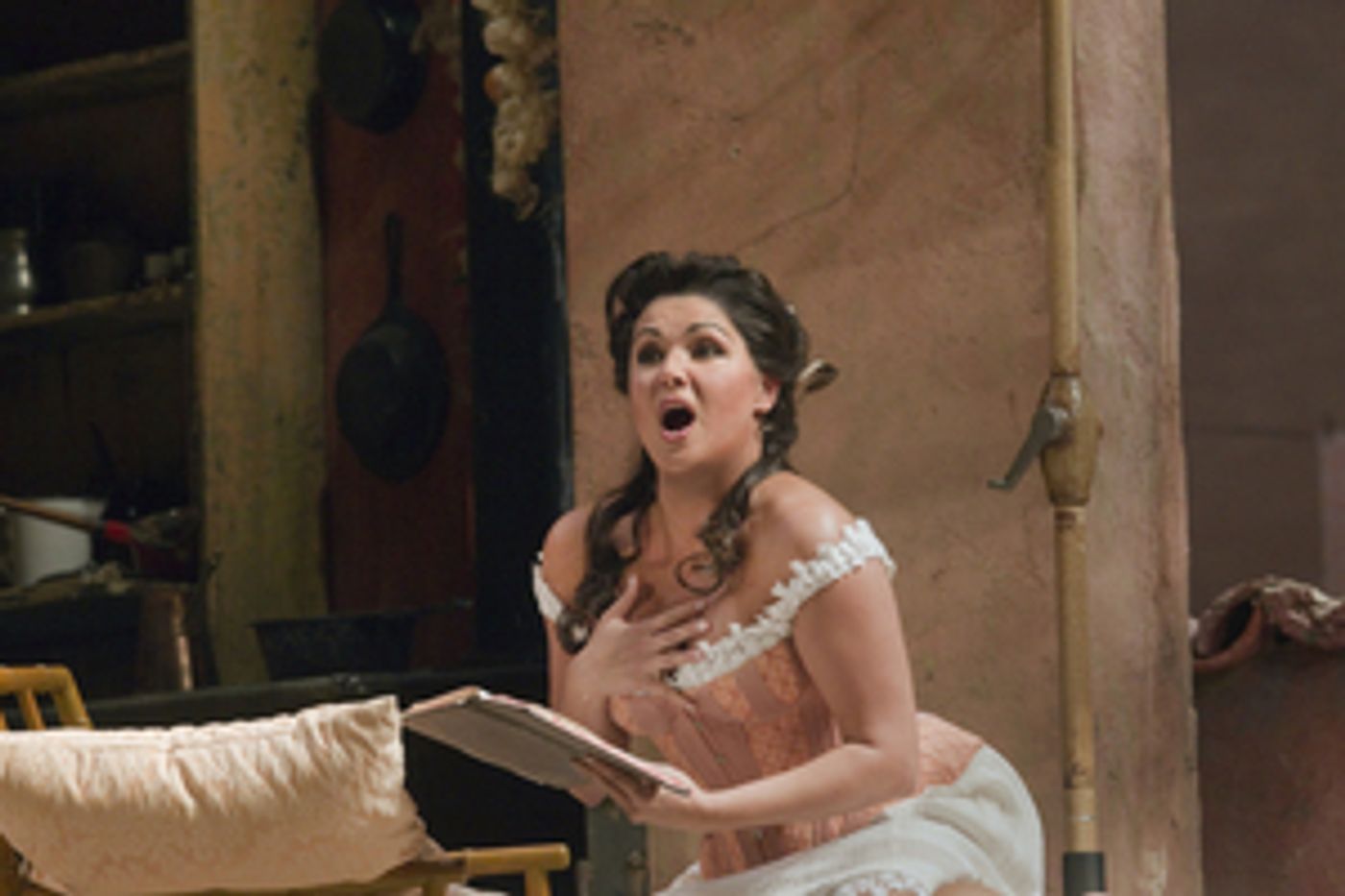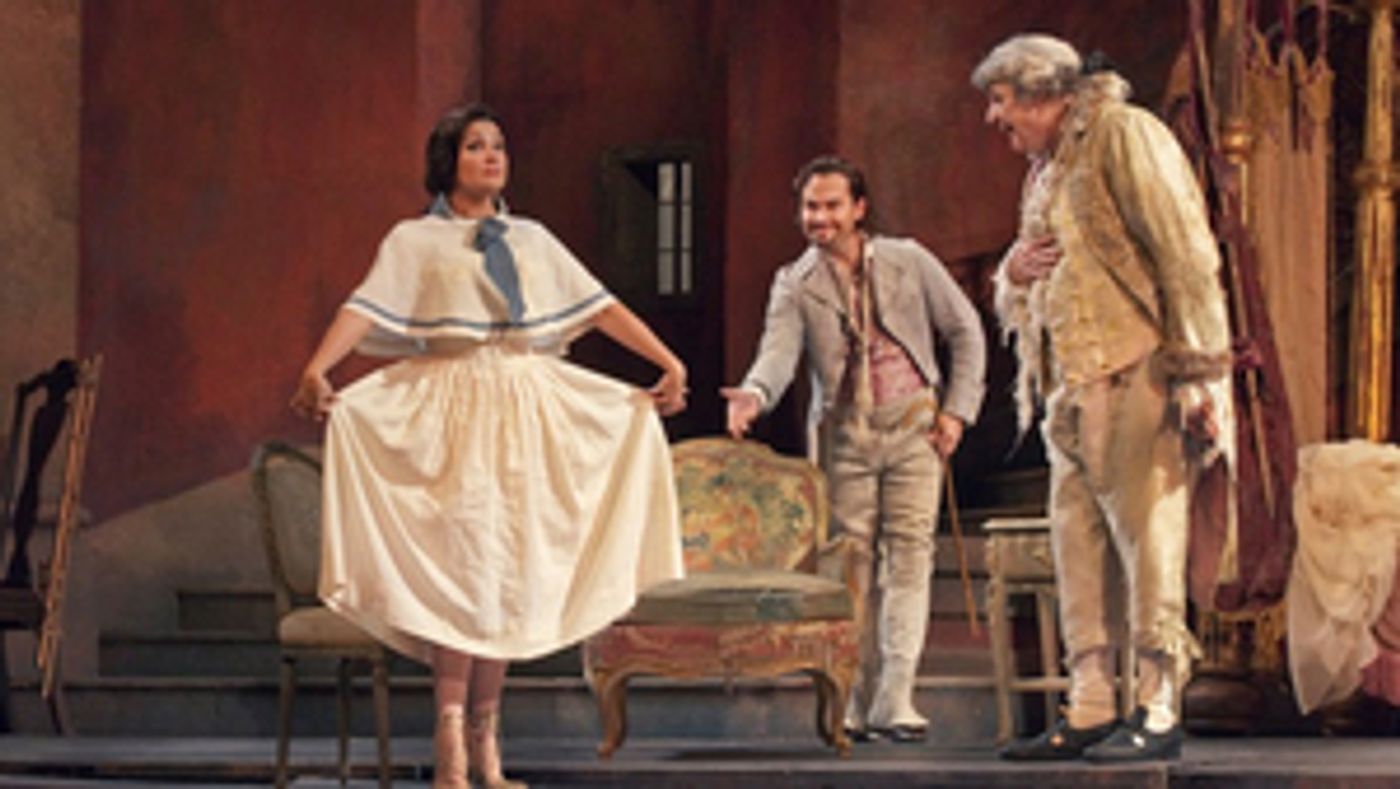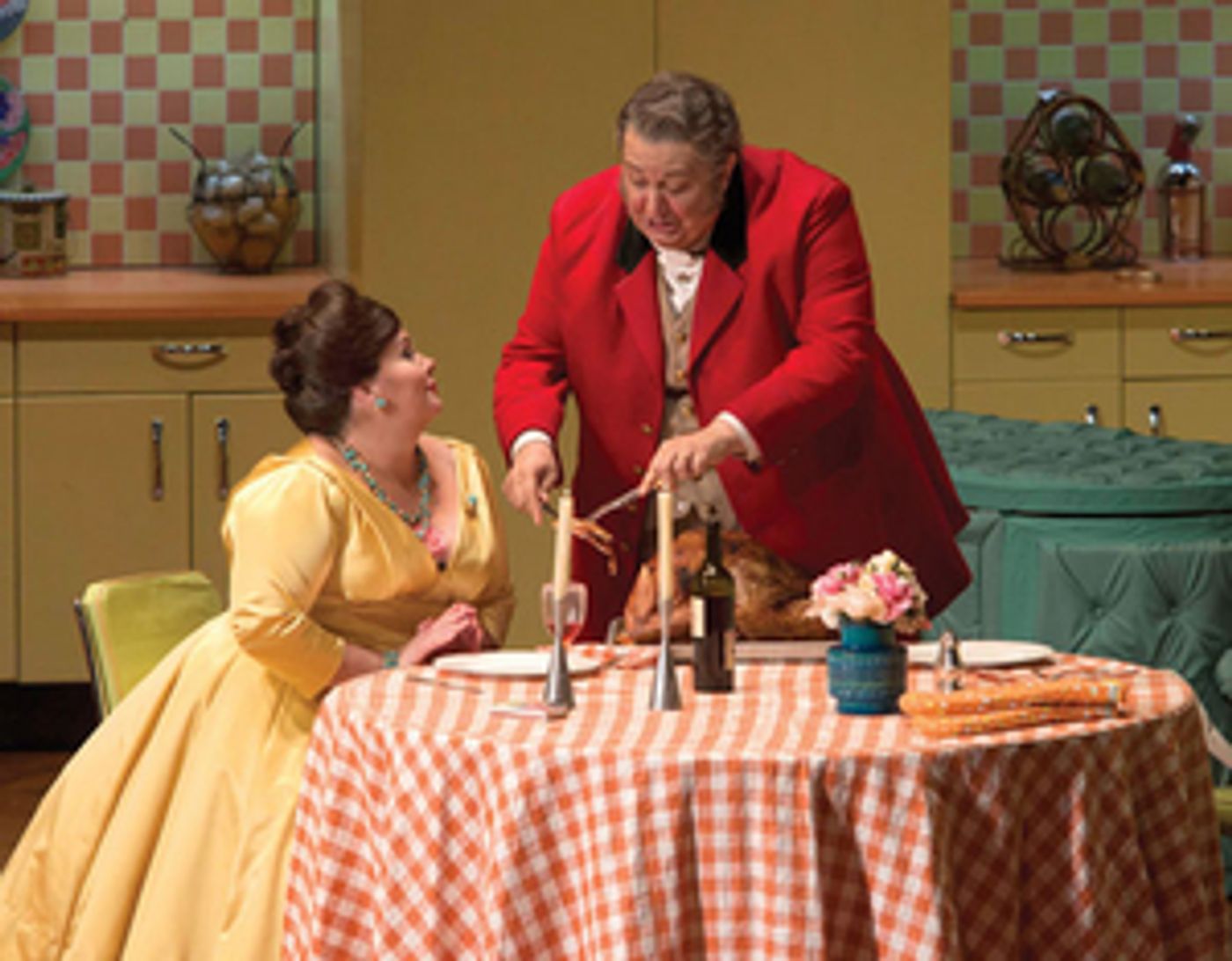Review: Giggles Galore at the Met? You Bet—from PASQUALE and FALSTAFF on Demand

Marty Sohl/The Met
As Stephen Sondheim wrote in his prologue to A FUNNY THING HAPPENED ON THE WAY TO THE FORUM, "Tragedy tomorrow, comedy tonight!" While there's no end to the number of memorable tragedies in the opera repertoire, the great comedies are fewer and much further between.
Luckily for viewers on the Metropolitan Opera's "Met on Demand"-with selections available free in this time of COVID-19, on your laptop or as apps for your phone or tablet-there were a couple of knee-slappers thrown in among the drama of AIDA, PARSIFAL and ROMEO ET JULIETTE this week. Two of my favorites were there: Donizetti's DON PASQUALE and Verdi's FALSTAFF. (There was also COSI FAN TUTTE.)
While both the two operas are about old goats who get their comeuppance from the women they've had their eyes on, they couldn't have been more different than, well, their composers. (Verdi, almost 80 when he wrote this, his last work, knew something about men of a certain age, while the Donizetti of PASQUALE was just a fledgling of 46, though he had more sympathy for his character.)
PASQUALE is filled with the kinds of arias that Donizetti is famous for, whether patter songs that are filled with words (by Ruffini and the composer) that fly by a mile a minute, or love songs that cry out for an encore (which they've had in other seasons).
FALSTAFF, on the other hand, has a more cerebral score, including a libretto by Arrigo Boito that makes you grateful that there are subtitles to help you follow to machinations that owe so much to Shakespeare's MERRY WIVES OF WINDSOR and HENRY IV.

Photo: Marty Sohl/The Met
Of course, the casts were key in putting the operas across. While these days, Anna Netrebko has gone deeper and deeper into the dramatic repertoire as she heads her way toward Strauss's SALOME (and Wagner's...Brunnhilde?). But watching and hearing her as the minx Norina in PASQUALE, you wish that her voice hadn't been growing a mile a minute and she'd keep high and low comedy as her forte. (Otto Schenk's production, with sets by Rolf Langenfass, was notable, too.)
Her Norina is sensationally acted and sung (though with a little more heft than often heard). She was aided and abetted by John del Carlo as Pasquale (what a master of patter!), Matthew Polenzani as her love (marvelous in "Com'è gentil") and Mariusz Kwiecien as Malatesta. But it was Netrebko's night and she proved that, while L'ELISIR D'AMORE may be the more famous of Donizetti's comedies, PASQUALE is absolutely first-tier.

Beth Bergman/The Met
While the female lead stole the show in the Donizetti, it was the title role in FALSTAFF, brilliantly sung and acted by Ambrogio Maestri, that you couldn't take your eyes off for a moment. Robert Carsen's updating of the story to England in the '50s, with Paul Steinberg's marvelous sets, help gloss over the opera's absence of big traditional arias and choruses, but it is Maestri's performance that dazzles. (If he seems to have more vim and vigor than is frequently seen in the role, which most frequently goes to veterans of the opera stage, it could be because he is only in his 40s.)
Naturally, he didn't pull off the alone. The "Merry Wives" did some spectacular comedic work, starting with Stephanie Blythe's Mistress Quickly, Angela Meade's Alice Ford, and Jennifer Johnson Cano as Meg Page. As the ingenue, Nanneta, Lisette Oropesa was a charmer-and gave no indication that she would become the Met's 'courtesan of the season' in this truncated 2019-2020 year. Franco Vassallo as Ford and Paolo Fanale as Fenton (Nannetta's squeeze) were also valuable assets to the piece.
Stay tuned to the Met on Demand pages to see what's ahead as we slog on in this year of our nightmares. Thanks to all at the Met for keeping things going.
Reader Reviews
Videos

